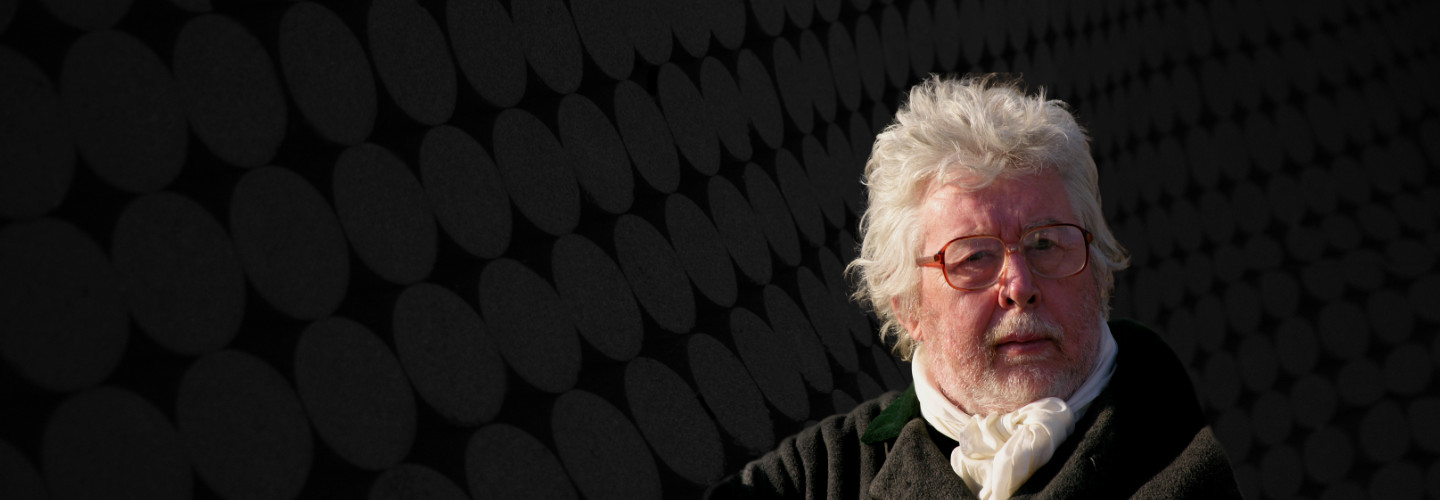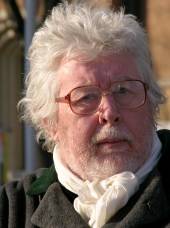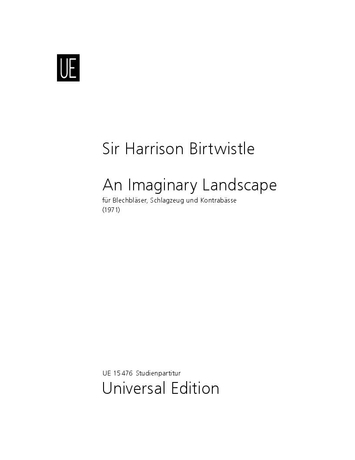

Sir Harrison Birtwistle
An Imaginary Landscape
Short instrumentation: 0 0 0 0 - 4 4 3 1 - timp(2), perc(2), cb(4)
Duration: 20'
Dedication: To the memory of my Mother
Instrumentation details:
1st horn
2nd horn
3rd horn
4th horn
1st trumpet
2nd trumpet
3rd trumpet
4th trumpet
1st trombone
2nd trombone
3rd trombone
tuba
1st timpani
2nd timpani
1st percussion (+xyl
vib
t-tam
Fingercymbeln)
2nd percussion (+xyl
vib
3x t-tam
Fingercymbeln)
1, 2th double bass
3, 4th double bass
5, 6th double bass
7, 8th double bass
Birtwistle - An Imaginary Landscape for brass, percussion and double basses
Printed/Digital
Translation, reprints and more

Sir Harrison Birtwistle
Birtwistle: An Imaginary Landscape for brass, percussion and double bassOrchestration: for brass, percussion and double basses
Type: Studienpartitur
Audio preview
Work introduction
... By the time he composed An Imaginary Landscape Birtwistle was beginning to move towards the sound world of his stage work on the Orpheus legend. If one wanted to find a portmanteau title for a Birtwistle work of that period, (which includes his most celebrated early score, The Triumph of Time) then „imaginary landscape“ would be as good as any. It is a title first used by John Cage for a series of electronic works in the early 1950s but it is peculiarly appropriate for a composer who has frequently used a geographical metaphor to describe the way a listener might orientate his or herself in his music: „One starts, stops, moves around, looks at the overall view, fixes one’s attention on a particular feature or on a detail of that feature or on a fragment of that detail or on the texture of that fragment.“
Birtwistle calls An Imaginary Landscape a „processional“, and the progress of the music is that of a steadily unfolding musical frieze which seems to be oblivious to the passage of normal human time. The ensemble of brass, percussion and doubles basses is divided into instrumental choirs, which are reassigned in the middle of the work; the groups of instruments call to each other, oppose or ally themselves with their colleagues, until finally they abandon their separate identities to play together for the final, very quiet chorale, composed in memory of the composer’s mother.
Andrew Clements
